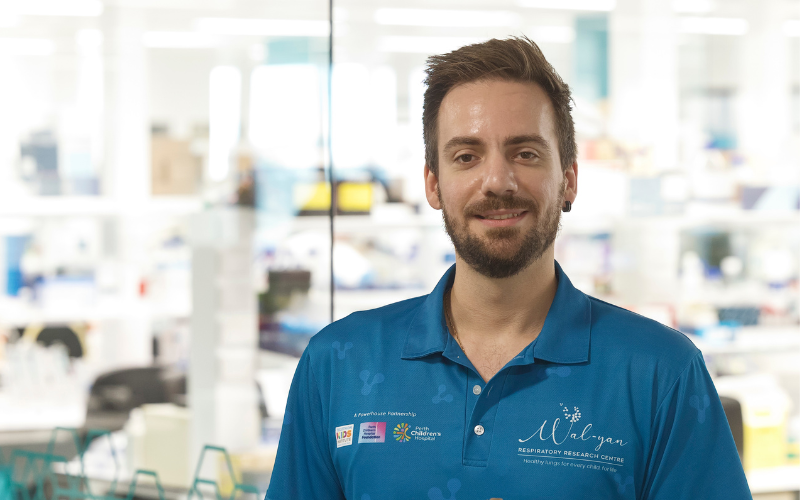Search
Showing results for "clinical trials"

News & Events
The Wal-yan Respiratory Research Centre turns three!As the Wal-yan Respiratory Research Centre turns three, we celebrate our achievements, and say thank you to our amazing community.
Research
Effectiveness of clindamycin and intravenous immunoglobulin, and risk of disease in contacts, in invasive group a streptococcal infectionsThis paper reports on treatment, and preventing infection in close contact, of invasive group A streptococcal (iGAS) using the antibiotic clindamycin and...
Research
Changes in risk factors for preterm birth in Western Australia 1984-2006Marked increases in maternal age and primiparous births were observed. A four-fold increase in the rates of pre-existing medical complications over time...
Research
Vitamin D deficiency at 16 to 20 weeks' gestation is associated with impaired lung function and asthma at 6 years of ageThis paper examines whether a Vitamin D deficiency during pregnancy affects the child's lung function predisposition towards lung disease such as asthma.
Research
Developing a Model to Account for Attrition Bias in a Longitudinal CohortOur objective was to develop a method that could be applied in a longitudinal cohort study to account for attrition bias in an investigation of exclusive...
Research
Viral Induced Effects on a Vulnerable Epithelium; Lessons Learned From Paediatric Asthma and Eosinophilic OesophagitisThe epithelium is integral to the protection of many different biological systems and for the maintenance of biochemical homeostasis. Emerging evidence suggests that particular children have epithelial vulnerabilities leading to dysregulated barrier function and integrity, that resultantly contributes to disease pathogenesis.
Research
Potent antileukemic activity of curaxin CBL0137 against MLL-rearranged leukemiaThe aim of our study was to investigate whether CBL0137 has potential as a therapeutic and chemopotentiating compound in MLL-r leukemia
Research
The epidemiological transition in Papua New Guinea: new evidence from verbal autopsy studiesOur results indicate immediate priorities for health service planning and for strengthening of vital registration systems
Research
Serotonin and aggressive behaviour in children and adolescents: a systematic reviewFindings were mixed, with support both for negative and for positive associations of central nervous 5-HT function with aggression in children and adolescents
Research
Sustained participation in annual continuous quality improvement activities improves quality of care for Aboriginal and Torres Strait Islander childrenTo determine whether participation in the CQI Audit and Best Practice for Chronic Disease programme improved care and outcomes for Indigenous children.
